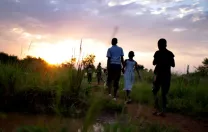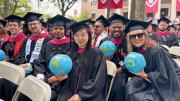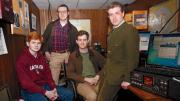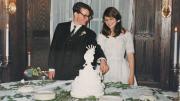In 2006, when Evelyn Brooks Higginbotham became chair of the department of African and African American studies, she wanted to catalyze student work that would return something to the communities the department studies. Thus was born the social engagement initiative, envisioned as a continuous feedback loop of research and service projects in Africa and in African-American communities. “We wanted a curriculum that said you could be socially responsible and engaged, and yet still be intellectually rigorous—that those two things could be wed together,” says Higginbotham, Thomas professor of history and of African and African American studies.
This year, the department will graduate the first seniors taking part in the social engagement initiative. Two are profiled here: Sangu Delle ’10, who led clean-water and sanitation efforts in a village in Ghana, and Oluwadara Johnson ’10, who created a performing-arts-themed summer camp for underprivileged girls in Nigeria. (The project of a third concentrator, Tonia Branche ’10, is designing a diabetes-education program for the Haitian population in Boston, with attention to cultural, religious, and social factors that affect the disease’s development and treatment.)
Although traditionally there has been a divide between academics and service at Harvard, Higginbotham believes this new program has been well received because it requires students to meet the normal academic requirements “and then some.” The service project is part of the thesis itself, but each student will also submit the standard written paper—and a documentary film. The department has brought on filmmaker Diane Hendrix as a visiting professor to instruct the students in filmmaking, although her course, “Making Media across Cultures,” is open to all.
The program encourages students to draw on an interdisciplinary cluster of professors as they fine-tune their projects and evaluate them after implementation. Harvard has always done a good job of bringing students up to speed on current scholarly models, says Higginbotham; the new program’s goal is to get them to form opinions based on experience—“to think critically, to begin to question what they read, and to sometimes come up with new models.”
The initiative also emphasizes sustainability. Delle has worked with community residents to make sure the construction of new latrines will continue, with money already raised, in his absence. Johnson plans to return next summer to lead another session of her summer camp, but in the meantime has enlisted the teachers and volunteers who have already helped her to run an afterschool program that will keep the girls engaged. “The idea is not for students to come in, have an experience, and then leave people high and dry when it’s over,” says Higginbotham. “Sometimes you can do communities harm if you come in and do a good deed and leave them.”









